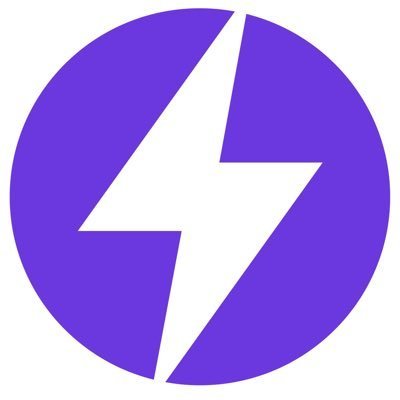Summary
STORM is an ERC-20 compliant token, native to the Storm gamified microtask platform, operating on the Ethereum blockchain and described as the “crypto for the gig economy”. The Storm platform was initially developed by StormX, Inc (formerly CakeCodes Global SEZC, Inc) and building on the original Bitmaker project (still visible at https://bitmaker.cakecodes.com/). At one point, the platform branding was focussed around the 3 core products of Storm Play (part of the Storm Market), Storm Gigs and the future Storm Shop as set out in the roadmap, but the latest rebrand amalgamates these to just “Storm”. It allows “Players” around the world to earn crypto currency rewards (denominated in “Bolts”) for the completion of tasks set by “Makers”. Makers post these on the platform and are required to pay in STORM tokens. The rewards (Bolts) can currently be withdrawn by Players in Bitcoin, Ethereum or STORM tokens above a certain threshold and the app converts and exchanges them at the market rate accordingly. Bitcoin and Ethereum withdrawals will only be possible during the transition period from the original app to the fully functional blockchain platform however.
_1.jpg)
What sets them apart?
Storm was one of the first platforms that allowed users to be rewarded in crypto currency simply by playing games or watching gamified adverts on their mobile phones. The project has since embarked on its second stage product for the platform, gigs, opening it up to a much wider potential market.
It is thought that up to 1/3 of Americans and Europeans currently work as freelancers in what has become known as the gig economy. This number is set to reach 50% by 2020, such is the pace of this new way of working. As one of the few platforms utilising blockchain technology to help automate and support this gig economy, they are one of the first to recognise the potential in facilitating this new form of employment (big or small), assisting those requiring task completion to find appropriate resources, whilst ensuring fair renumeration for such tasks is received, all within a smart contract.
The Makers (those wanting to put players to work) get to tap into a microtask market to get things done quickly and simply for them. They also allow an effective means of advertising a new game/product/service to its potential audience at an early stage, whilst gaining vital feedback before full launch.
The Players can make use of their spare time, earning from tasks/games they are interested in, safely and securely.
_2.jpg)
Next up in development is the shop facility for Storm, allowing users to then spend their crypto earnings on other merchant products and services, all in the same place.
Team
StormX, Inc boasts an experienced team with engineers that have come on board from the likes of Amazon and Intel, all headed up by their impressive young CEO, Simon Yu. The advisory team would be the envy of many projects with the likes of Bill Shihara (Bittrex Founder), Charles Hoskinson (CEO of IOHK), Anthony Di lorio (Founder of Jaxx/Ethereum), Brian Kelly (BK Capital) and more.
In addition they have a number of partnerships in place with other projects including Kyber Network, Bancor, ZenCash, Jaxx and Qtum.
_3.jpg)
What are they trying to accomplish?
“Our mission is to enable anyone around the world to earn a living wage on any device.”
Andy Kleitsch, VP of Product for StormX, Inc
As they have developed the platform from trying out games/viewing adverts to an expanded gig-economy offering, they are seeking to “make work as fun as play”. By gamifying this process they want to both build on their existing user base and attract new Players looking for additional earning opportunities from their free time, in a fun, attractive and simple way. All this whilst enjoying the effective protections and reduced risks with such tasks through the use of blockchain technology.
The third stage of the product will build-out a retail environment within the platform, effectively creating a fully fledged mini-economy from within the app.
_4.jpg)
Does it solve a real problem?
The gig-enomomy is expanding globally year on year. The Storm platform recognises this potential as well as the need for security on both sides of this marketplace (to ensure that the task has taken place and that it will be appropriately paid for), whilst also identifying a need to cut the high service fees taken by traditional platform providers in this area. This allows more of that value to be passed on to the users, in an increasingly peer to peer fashion as the platforms decentralises via smart contracts over time.
Storm has the potential to create this trustless, safe and secure environment for the gig-economy that is desperately needed by both parties. They can then expand that to a wider economy incorporating a retail environment to actively spend and transact in your earned crypto currency, something that is still highly lacking in traditional markets.
SWOT Analysis
Strengths
- Well respected and experienced team who have already been working together for several years.
- Previously established, working platform in the real world.
- Developing a secure trustless network powered by Ethereum smart contracts.
- Reduced intermediary transaction fees compared to current platforms (i.e. Fiverr, Upwork & Amazon) who can charge up to 40%!
- Flexible earnings at a time and on a device to suit you.
- Gamified nature allows people to earn to play.
- High level wallet and application integrations (Coinbase, Xapo, Jaxx and more).
- Token availability on larger exchanges (Binance, Bittrex, Upbit, etc).
_5.jpg)
Opportunities
- The development of a truly decentralised marketplace with no central party.
- Already rapidly grown to over 1.6 million diverse global Players, though over 25% of these migrated through from the Bitmaker app platform.
- Flexible reward conversion to STORM token, Bitcoin or Ethereum (though in future rewards can only be converted to STORM tokens).
- Empowering the underpaid, unemployed and unbanked.
- Allowing people to make use of commuting or other dead time.
- A shop facility is in development for the platform allowing users to spend their earned crypto on other products and services.
- Loyalty/bonus program to boost player numbers/referals and token use/holdings.
_6.jpg)
Weaknesses
- Only currently available on Google Play and therefore missing out on iOS customers.
- Currently dominated by more menial microtasks (surveys, trials, etc) despite aiming to disrupt the wider gig-economy.
- Regular changes to branding and naming of services causing confusion for new users.
- Poor reviews for app usage suggest there are still issues to iron out.
- The platform remained centralised on launch, however blockchain based smart contracts are planned to decentralise the process of creating and engaging in the marketplace without the need for a central party in future.
Threats
- The need for a native token is questionable as the project could have been launched on the Ethereum blockchain without it and rewards continued in Bitcoin or Ethereum.
- The 25% retention of tokens for the team and another 23.26% on a 2 year blackout period will be concerning for many. A total of 51.74% were distributed via the crowdsale, or to existing users however.
- Poor overall Player take up of STORM tokens. Their use on the app will be forced in future, but may lead to some Players leaving the platform without BTC/ETH support.
- Regulatory compliance requirements once you have earned a certain amount of crypto currency and W9/W8BEN submissions will be off-putting and cumbersome for many, particularly if outside the US.
Community Activity
The platform has excellent global take up and itself now comprises a community of over 250,000 monthly users, with over 1.6m people having downloaded the application. On the social side, it enjoys a reasonable audience, particularly on Twitter, something that it needs to harness further if it is to sustain such user growth.
Conclusion
Storm is a relatively small project attempting to leverage a niche that could be the next killer app. It has a working platform in the real world, with impressive user numbers and is indeed helping to solve a real problem. However, whilst I understand the desire to re-launch the platform using blockchain technology with all the benefits that brings, there are still question marks around why the dApp really requires its own native token beyond funding and flexibility, at least in the short term, and the future loss of BTC and ETH support may also damage it. As it becomes more decentralised and the number of users/demand increases, in conjunction with the launch of the shop facility, that may change. They’ll also need to ensure the long-term value of the current gig economy use case by providing increasing levels of sophistication in the job/task opportunities available. If it remains too focussed on more menial tasks, users may start to lose interest. Once greater demand has developed, they will also need to take a more jurisdictional approach to regulations if they are to continue to grow across the world and avoid unnecessary headaches for users. The hurdles ahead for this project are many, but if they can pull it off as planned, the market and value creation is huge.
Disclaimer: Investing or trading in crypto currencies involves significant risk. It is important to research and carefully assess any such investments. All the information presented in this article does not constitute financial advice or recommendations of any kind.
![]() By James Hunt (@humanjets)
By James Hunt (@humanjets)



